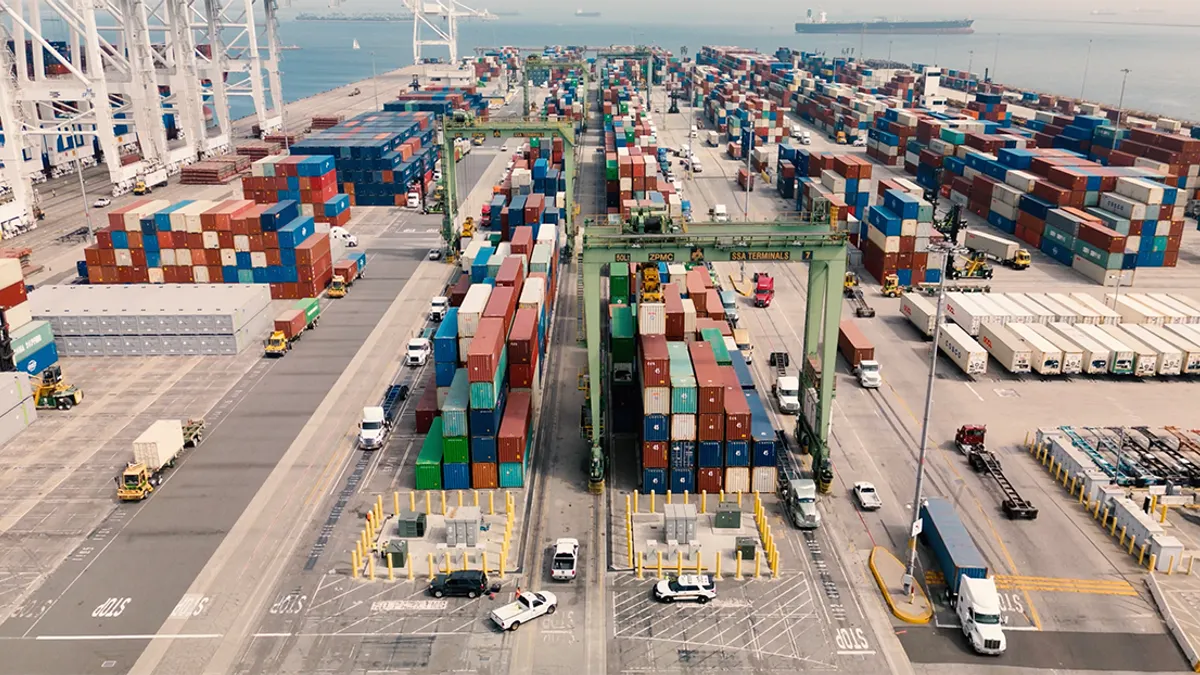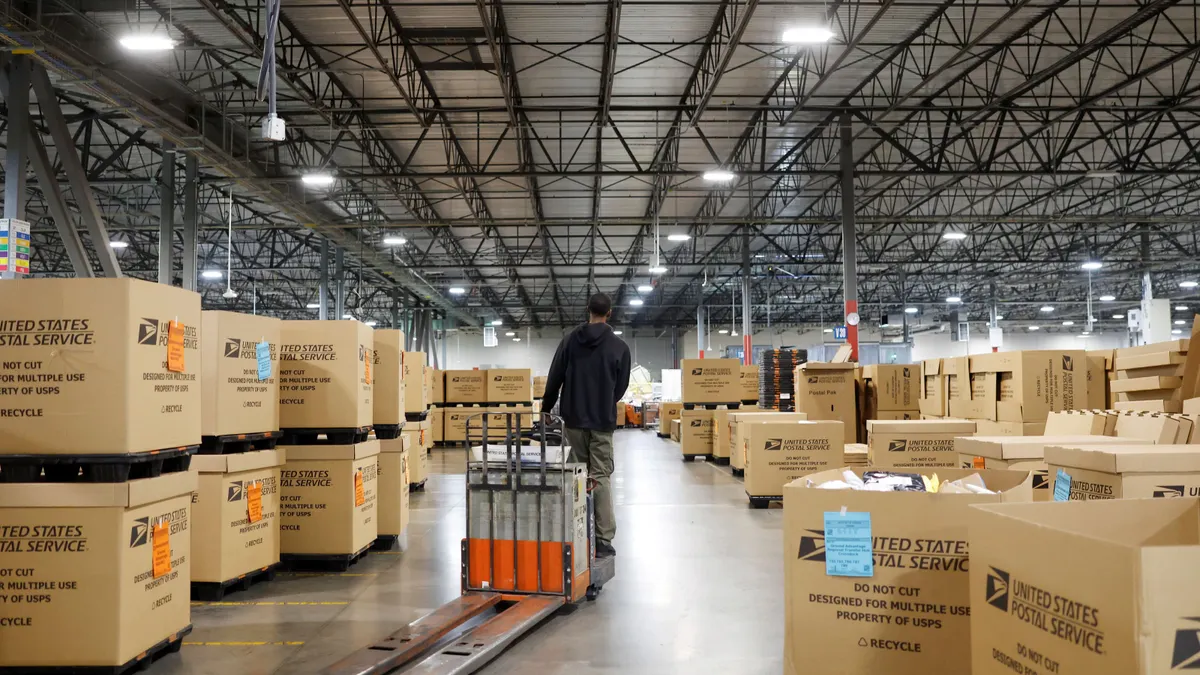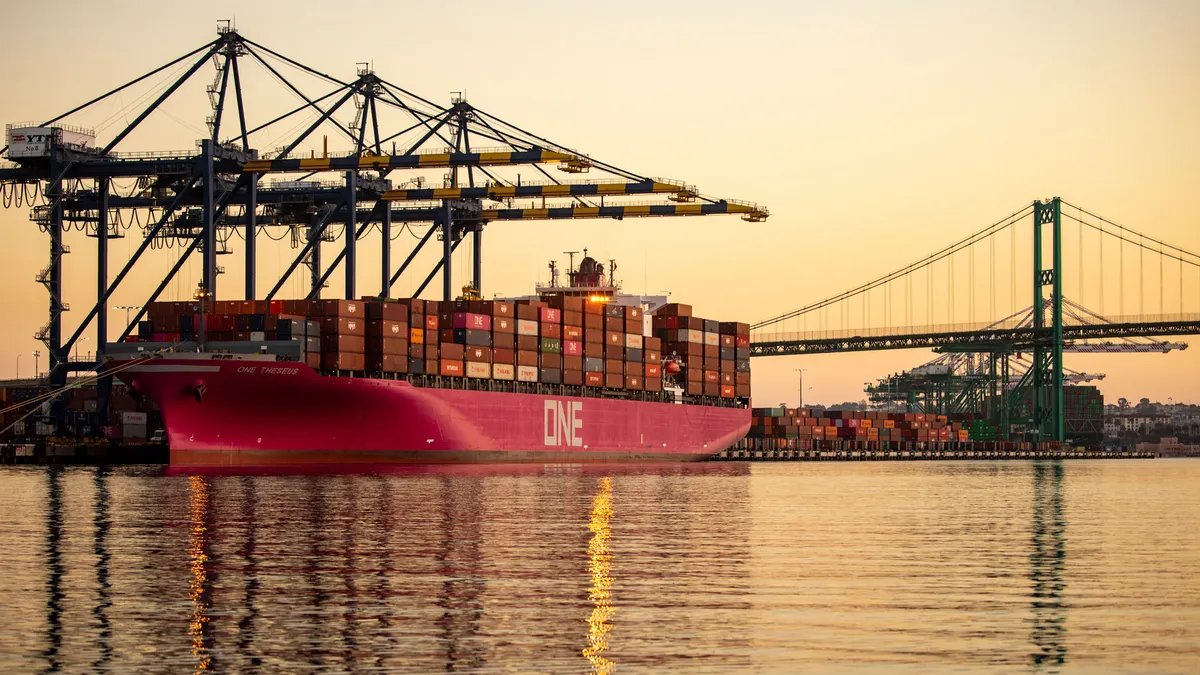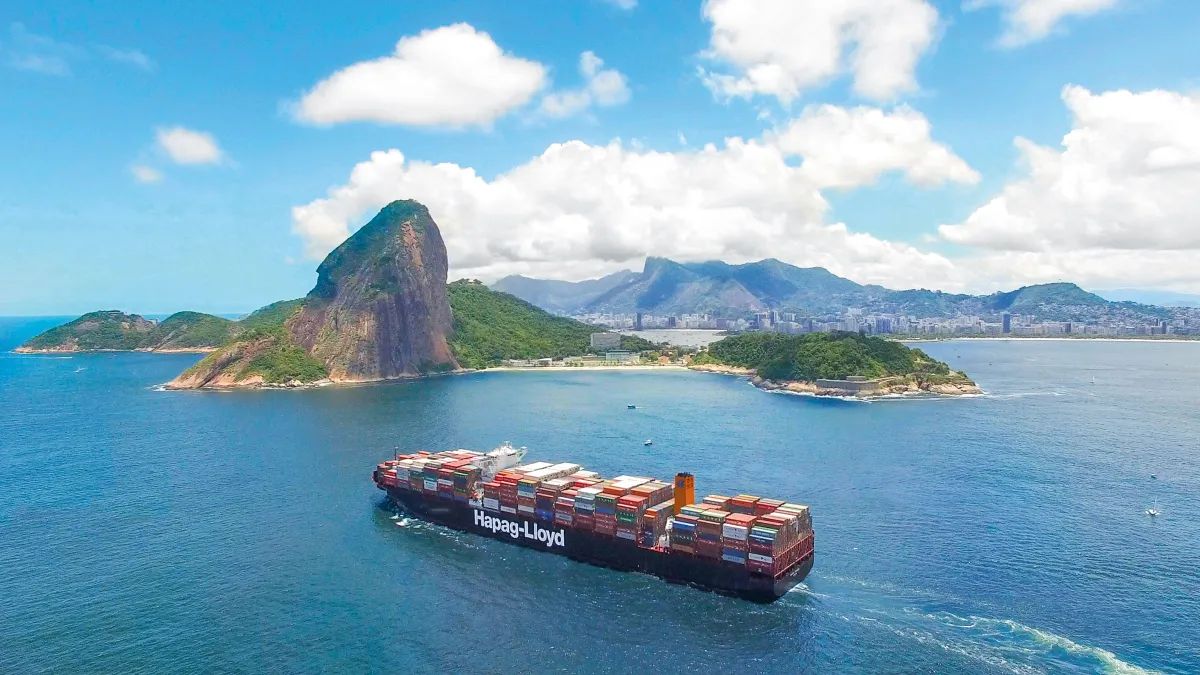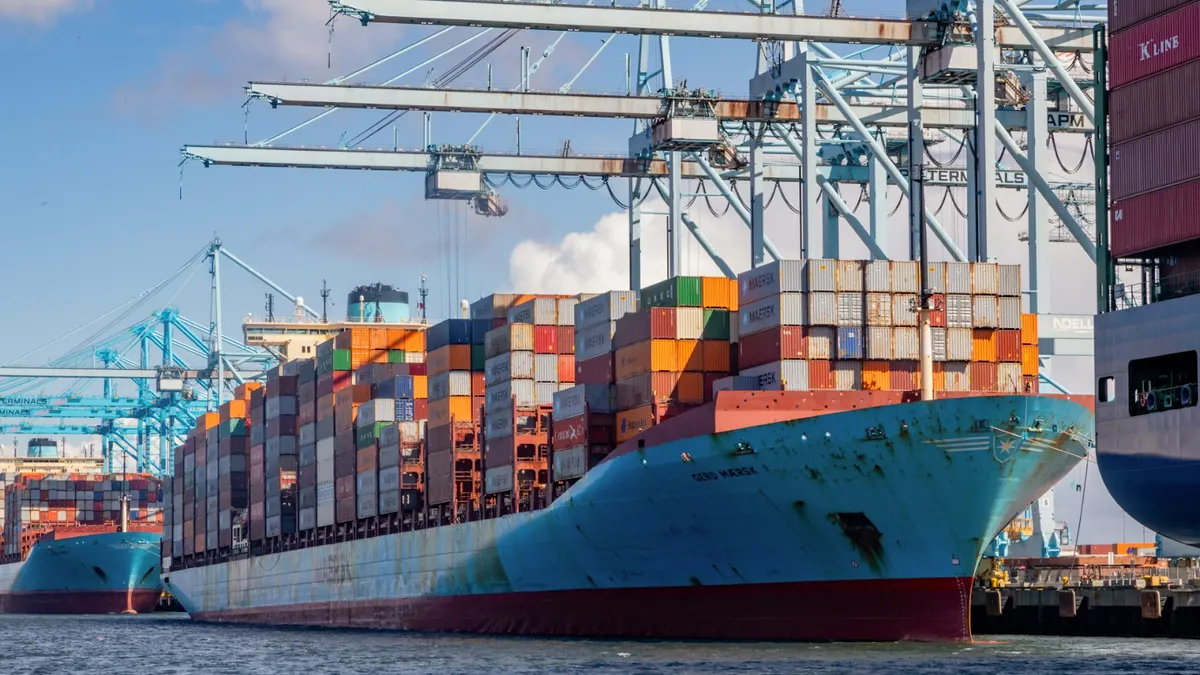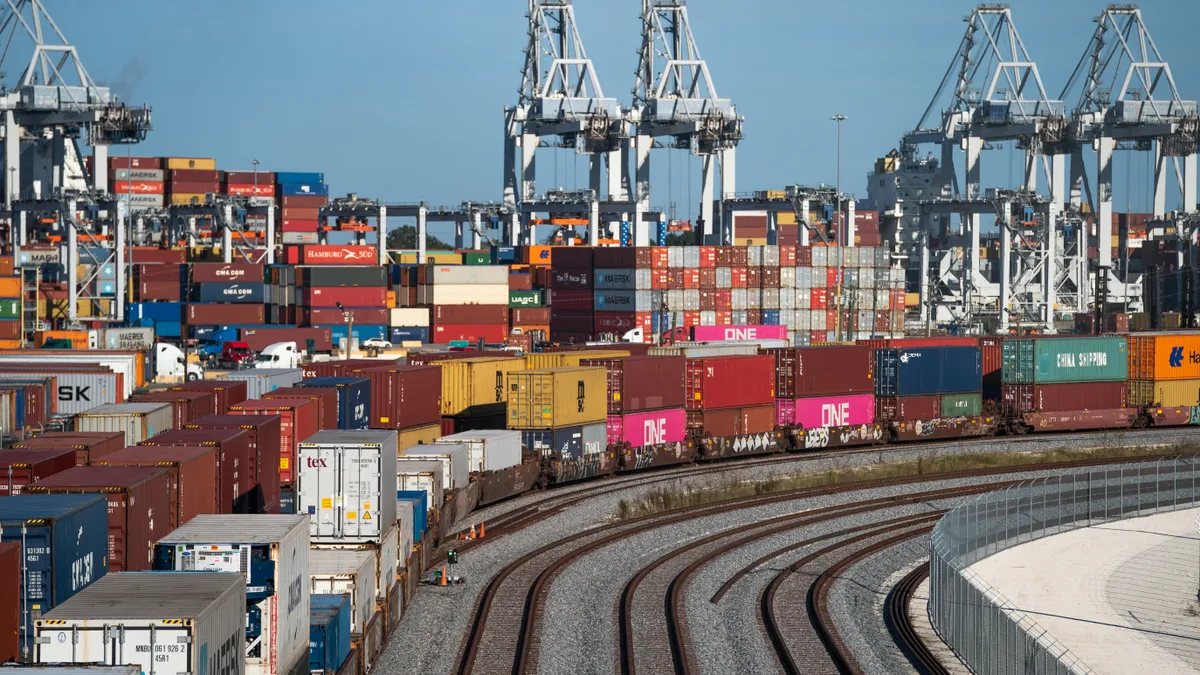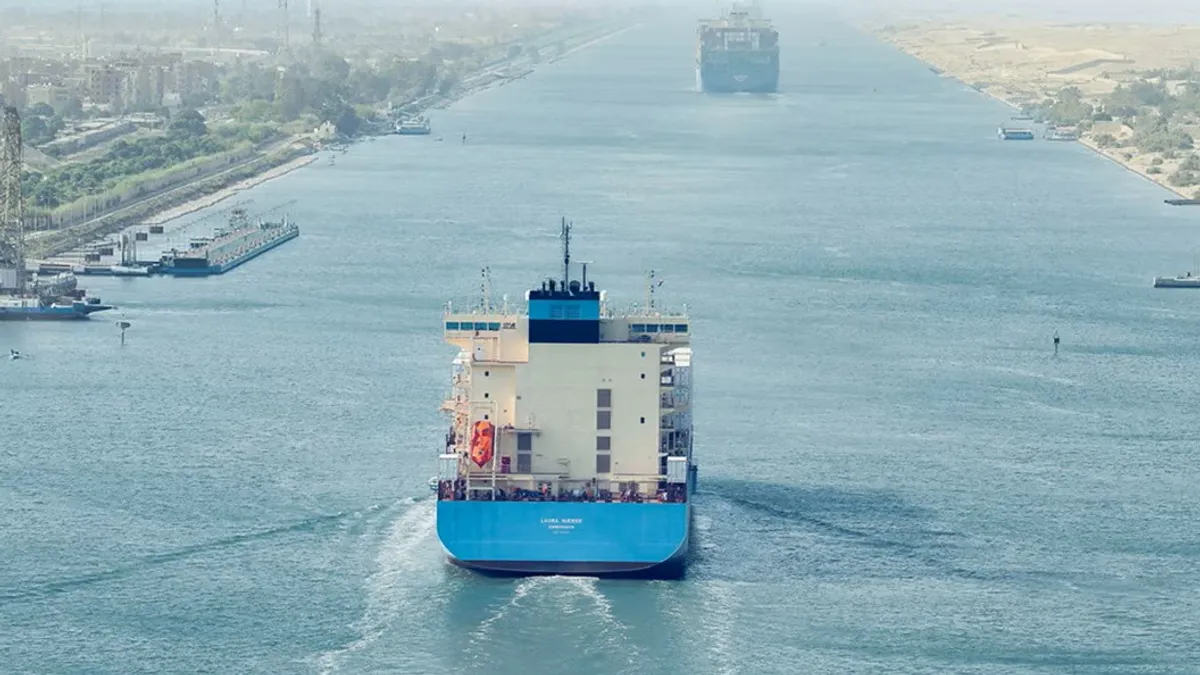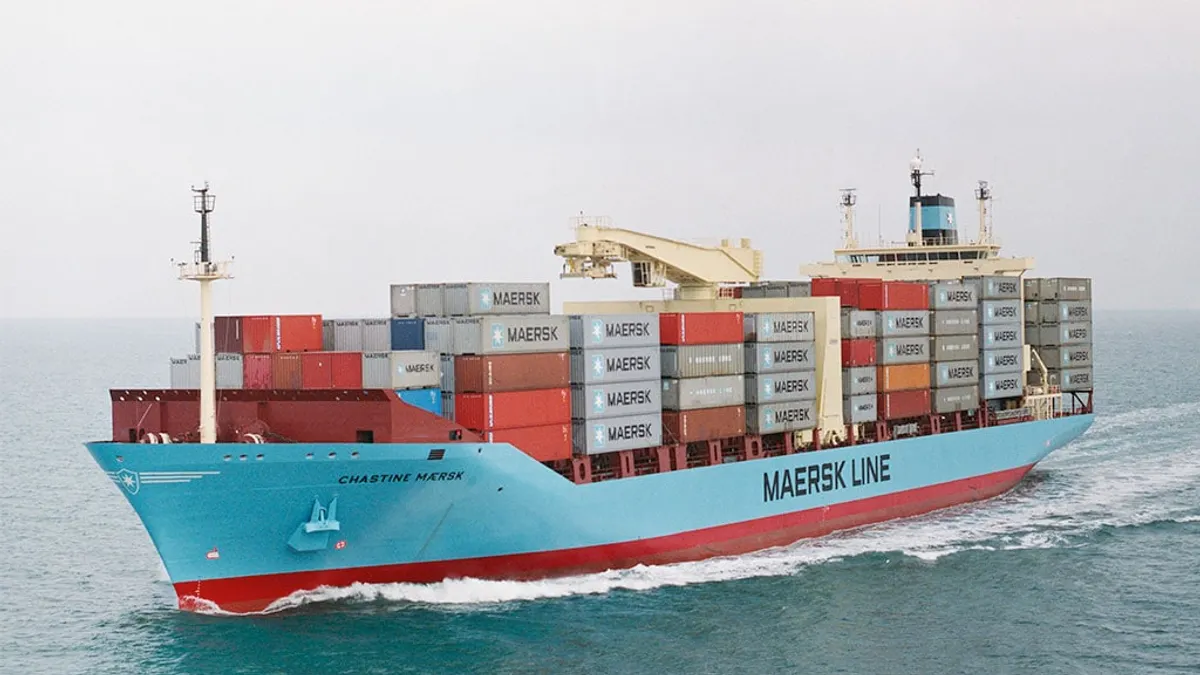Several ports use federal grants to fund emission reduction-based projects. Since 2008, ports have received grants under the Diesel Emissions Reduction Act (DERA) to fund port equipment, such as drayage trucks, electric trucks, gantry cranes and electric yard tractors.
However, President Donald Trump's One Big Beautiful Bill Act, signed in July, will reshape funding for certain environmental programs. The law modifies and rescinds funds that were allocated by the Inflation Reduction Act (IRA). As a result, some ports will no longer have access to certain funds if the rescission of funding for greenhouse gas emissions programs continues.
The Trump administration rescinded funds that had yet to be disbursed, including $60 million meant for the EPA to provide grants, rebates and loans to to reduce diesel emissions, according to Columbia Law School’s Sabin Center for Climate Change Law.
Recent grantees face less uncertainty related to previously awarded federal grants if grant agreements are already in place. However the Georgetown Climate Center notes that the U.S. Department of Transportation “has issued orders initiating review processes that could slow the pace of completing new grant agreements for certain programs.”
It is unclear if the paused grants will continue in the future. For now, though, a majority of ports so far seem unaffected by the new law, as many can rely on other forms of grants or have already received their DERA award. Here’s a roundup of previous DERA-funded projects at several ports a well as the impact (or lack thereof) of Trump’s tax bill.
Port of Los Angeles
Although the Port of Los Angeles has applied for and received DERA grants in the past, it will not be impacted by the current unobligated funds, a spokesperson said.
Most recently, in 2021, the City of Los Angeles’ Harbor Department was awarded a $2 million DERA grant to replace a Tier 0+ diesel engine on a switch locomotive with battery electric technology, per the EPA.
Port of Long Beach
The Port of Long Beach has received several DERA grants. For example, in 2019, the port's Harbor Department received over $1.4 million to replace 24 yard tractors with 20 electric yard tractors and four electric automated guided vehicles However, at this time, the Port of Long Beach is unaffected by the new law, as it doesn’t have any active DERA projects, a spokesperson said.
Port of Oakland
Chief Public Engagement Officer Matt Davis told Trucking Dive in an email that he isn’t aware of any projects utilizing current and/or prospective DERA funding that the program cuts would affect.
“The potential elimination of future DERA grant funding rounds is disappointing, and we’ll continue to work with our congressional delegation to support additional areas of infrastructure and equipment investment in emerging technologies for use in the Seaport,” Davis said.
In 2013, the Port of Oakland was awarded $273,546 to retrofit 14 pieces of cargo handling equipment with diesel particulate filters. In 2011, the Bay Area Air Quality Management District received over $1.1 million to replace 43 on-road, heavy-duty trucks operating around the Port of Oakland.
Northwest Seaport Alliance
In 2023, the NWSA was awarded $900,000 to replace 30 pre-2007 drayage trucks with newer, cleaner diesel versions with 2017 or newer engines. This project, under the port’s Northwest Ports Clean Air Strategy, is currently open and using DERA funds.
“We typically pass through DERA funds to cover around 50% of the cost of that new truck (currently $20-$30k). Roughly a couple of hundred trucks have been scrapped using DERA funds in the past few years,” a spokesperson said in an email.
The rescinded $60 million in funding for the EPA has no direct impact on the port, the spokesperson added, although they noted that if DERA grants are reduced or disappear, it will make it challenging for the port to get other projects off the ground, forcing it to look for other sources of funding.
Port of New York and New Jersey
The Port of New York and New Jersey uses DERA awards for its Truck Replacement Program. The program helps qualified applicants obtain newer, more environmentally friendly vehicles that are often equipped with cleaner, lower-emitting engines, and are more fuel-efficient and require less maintenance.
Although the port uses DERA money, it has other forms of funding, such as the federal Congestion Mitigation and Air Quality Improvement program.
Georgia Ports Authority
A spokesperson confirmed to Trucking Drive that the Georgia Ports Authority currently has no active grants or applications under the DERA program.
The state’s port authority has previously received funding, however. For example, in 2021, the Georgia Ports Authority was awarded over $1 million to replace dray trucks with new, cleaner vehicles. It also received over $1 million in 2020 to replace 37 drayage trucks under DERA.
North Carolina Ports
The North Carolina Ports does not expect any challenges from the rescission of DERA awards.
“We received a national FY23 DERA grant to replace two container handlers and four dray terminal trucks in Wilmington. We have purchased all of the equipment and received reimbursement under the USEPA DERA program, so we do not expect any impact,” a spokesperson said.
PhilaPort
The last DERA award the Port of Philadelphia received was in 2019, a spokesperson told Trucking Dive.
“We secured $598,200, which combined with $1,241,800 in non-federal PhilaPort funds, enabled the purchase of (4) ChargePoint charging stations and (4) Terberg electric yard tractors,” the spokesperson said via email. These vehicles are now being used for operations at the port’s Tioga Marine Terminal.
Still, the port said that with the phase-out of the DERA program, it is losing a key federal funding to support its clean ports planning efforts.
“As an independent state agency, PhilaPort relies on federal discretionary programs to advance our environmental initiatives, and we will need to identify alternative funding sources to continue making progress in reducing diesel emissions in and around our terminals,” the spokesperson said.



